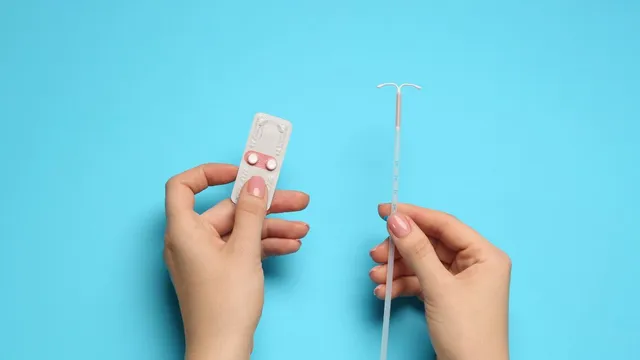- By Priyanka Munshi
- Tue, 08 Apr 2025 05:03 PM (IST)
- Source:JND
Thinking of getting an IUD but worried about how it might change your period? Whether it makes your flow heavier, lighter, or just right, here’s what you need to know before making the choice. An IUD (Intrauterine Device) is a small, T-shaped contraceptive device used by many women to prevent pregnancy. It is considered one of the most effective and long-lasting birth control methods. IUDs can last anywhere from 3 to 10 years, depending on the type. They are chosen by millions of women due to their minimal maintenance. In a conversation with Jagran English, Dr. Gauri Jagdale, Consultant - Obstetrics & Gynaecology at Motherhood Hospitals, Kharadi in Pune, talked about how an intrauterine device affects your menstrual flow.
According to Dr. Gauri Jagdale, an IUD is a convenient option as it does not rely on daily reminders like birth control pills. There are two main types of IUDs: hormonal and copper. Hormonal IUDs release progestin into the body, which thickens cervical mucus and thins the uterine lining. This can sometimes interfere with your menstrual cycle, resulting in lighter or even skipped periods. On the other hand, copper IUDs create an inflammatory response to sperm but can also affect your menstrual cycle, especially in the initial months. Understanding how an IUD affects your cycle, along with potential side effects, can help you choose the right one for your body and lifestyle.
How Does An IUD affect Your Period Flow?
Hormonal IUDs (like Mirena): Periods can become lighter or even get skipped when using a hormonal IUD. This mostly happens due to the release of progestin, which thins the uterine lining. Some women even stop getting their periods altogether due to hormonal IUDs.
Copper IUDs: This type of IUD does not contain hormones and is therefore less likely to stop your periods. Instead, it can make the flow heavier and cramps stronger. However, these effects usually reduce within a few weeks or months as your body adjusts.
Your body needs time to adjust: Every person’s body reacts differently to an IUD. Some may experience lighter or heavier periods depending on how their body responds. It may take a few weeks or months for your cycles to adjust and settle into a new pattern.
IUD Removal: Once an IUD is removed, your body returns to its natural state, including your menstrual cycle. Those with hormonal IUDs may experience a delay, whereas copper IUD users can generally resume their regular cycle immediately.
Also Read: Doctor-Recommended Daily Habits For Leading A Healthier Life
Who Should Opt For A Hormonal IUD For Period Regulation?
Dr. Gauri Jagdale said that women with heavy menstrual bleeding (menorrhagia) may benefit from a hormonal IUD, as it can significantly reduce blood flow. Those with irregular cycles may also find hormonal IUDs helpful. However, copper IUDs may not be suitable for women prone to heavy bleeding or painful periods. An IUD can be considered by women of all reproductive ages, particularly those in their 20s to 30s seeking long-term contraception or women approaching perimenopause to manage unpredictable bleeding patterns. While some women may experience initial side effects like spotting or cramping, these symptoms generally improve over time. Consulting a gynecologist is crucial to determine the most suitable IUD based on individual health needs, lifestyle, and period concerns. Additionally, hormonal IUDs can provide relief for conditions such as endometriosis, PCOS, or severe PMS while offering effective birth control.

